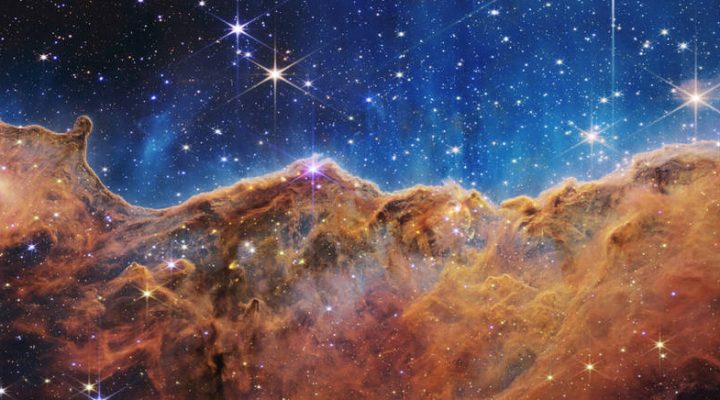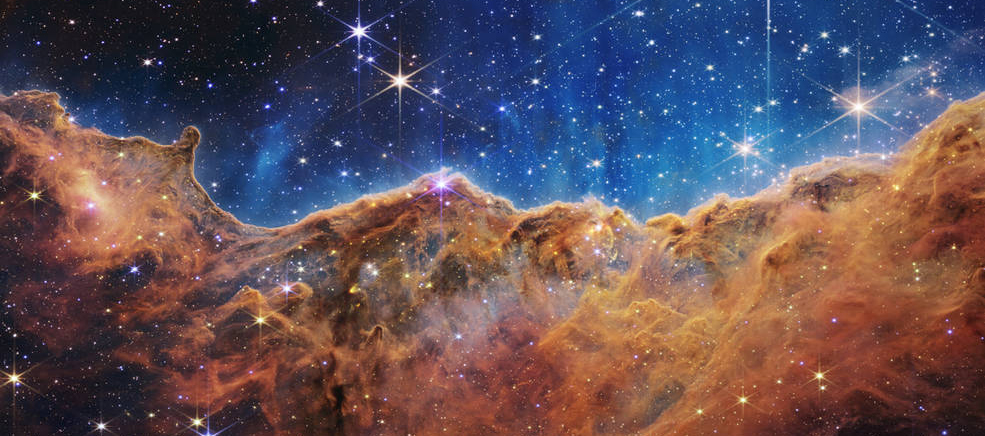A couple of months ago, I attended a gathering with astrophysicist Neil deGrasse Tyson and had the opportunity to be a part of a Q&A session with him afterward. One elderly woman asked him, “Where does God fit into all this?”
Tyson began his answer by noting the thousands of gods who have been worshiped throughout history and added: “What’s interesting to me about it, as an academic, is whatever is your religion — if you have a religion and if you are devout — the claims of every other religion look preposterous to you, completely preposterous. And you’re comfortable in the claims of your own religion and your own holy books. And your preachers or your holy leaders may even denigrate other religions for their failures or for what they are.”
Still, despite the many differences religious communities may feel from others, Tyson said there is hope for those who want to hold religious faith and accept modern science. “Being a scientist is not synonymous with being an atheist,” he said. “About 65% of all scientists in the West claim a personal God to whom they pray.”
“Are you prepared to recognize the occasion when science says something that your religious text does not?”
After sharing how a variety of scientific disciplines tend to split differently on the God question, he said, “What it comes down to is: Are you prepared to recognize the occasion when science says something that your religious text does not? When it conflicts with your religious text?”
How one handles conflicts between science and religious texts depends on how a person views their god.
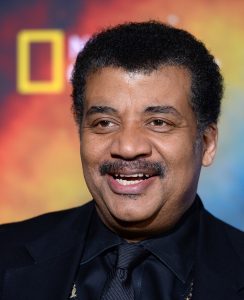
Neil deGrasse Tyson (Photo by Amanda Edwards/Getty Images)
Despite the fact that monotheists claim to believe in a God who is all-knowing and all-perfect, the theology they hold has been developed over time from culturally situated perspectives. And often, what happens is that this God we claim is perfect and whose image we claim to bear is actually bearing our image.
Tyson reassured the woman who asked him where God fits in that her religious belief is protected in the United States by the First Amendment. He pointed to religious freedom as the strength of the U.S.
“That’s how we got half of our immigrants,” he explained. “They were religiously persecuted in their own land. They come here, they’re free. We have mosques, Catholic churches, Protestant churches, synagogues, all within three blocks of each other. Is there any place else in the world where you see this? I don’t know. I don’t think so.”
But Tyson also pointed out the temptation Christians face when they have political power.
“If you rise to power, and you’re religious, power over laws and legislation have to apply to everybody. And now you want to take a religious point out of your religion and create a law out of it that everyone else has to obey? That’s not respecting the true plurality that is this country.”
And for him, these laws are especially problematic when they affect science.
“That diversity of belief systems is something to be cherished,” he said. “It just doesn’t belong in the science classroom.”
“Enlightened religious people don’t use their holy books as a textbook for science.”
“Enlightened religious people don’t use their holy books as a textbook for science,” Tyson declared. “They’re not running around saying the universe was created in six days in spite of the Bible saying that.”
A more proper use, he suggested, is to see holy Scripture “as a spiritual guide or as a sense of wisdom for living.”
When Christian nationalists wield government power to legislate their religious dogma into science, it fuels the ecological crisis we’re facing.
Rethinking our religion
Lynn White, in his 1967 article “The Historical Roots of Our Ecological Crisis,” makes a similar point: “More science and more technology are not going to get us out of the present ecologic crisis until we find a new religion or rethink our old one.”
White was a 20th century professor of Medieval history at Princeton, Stanford and UCLA. He wrote about how Christianity has been the source of our ecological crisis and how it can be the solution as well.
He argued that for humanity to heal the earth from its ecological crisis, Christians are going to have to gain the courage to face humanity’s faith crisis.
Because the root of the crisis is religious, the solution is also going to have to be religious.
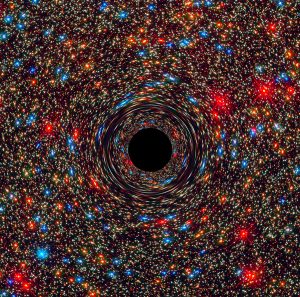
Computer-generated simulation of a black hole (NASA)
Despite how Western Christian theology has fueled a posture of entitlement over the earth that has created the current ecological crisis, there have been some exceptions to this mindset.
For White, the perfect example of such an exception was Saint Francis of Assisi in the 13th century.
“Francis tried to depose man from his monarchy over creation and set up a democracy of all God’s creatures. With him the ant is no longer simply a homily for the lazy, flames a sign of the thrust of the soul toward union with God; now they are Brother Ant and Sister Fire, praising the Creator in their own ways as Brother Man does in his,” White said.
“We shall continue to have a worsening ecologic crisis until we reject the Christian axiom that nature has no reason for existence save to serve man. Since the roots of our trouble are so largely religious, the remedy must also be essentially religious, whether we call it that or not. We must rethink and re-feel our nature and destiny. The profoundly religious, but heretical, sense of the primitive Franciscans for the spiritual autonomy of all parts of nature may point a direction. I propose Francis as a patron saint for ecologists.”
Ken Ham ‘exposes’ the Democrats and Andy Stanley
Perhaps the most popular and influential Christian leader who denies scientific consensus today and who wishes to wield government power to legislate young earth creationist views of science into the classroom is Ken Ham, founder of the Creation Museum and Ark Encounter.
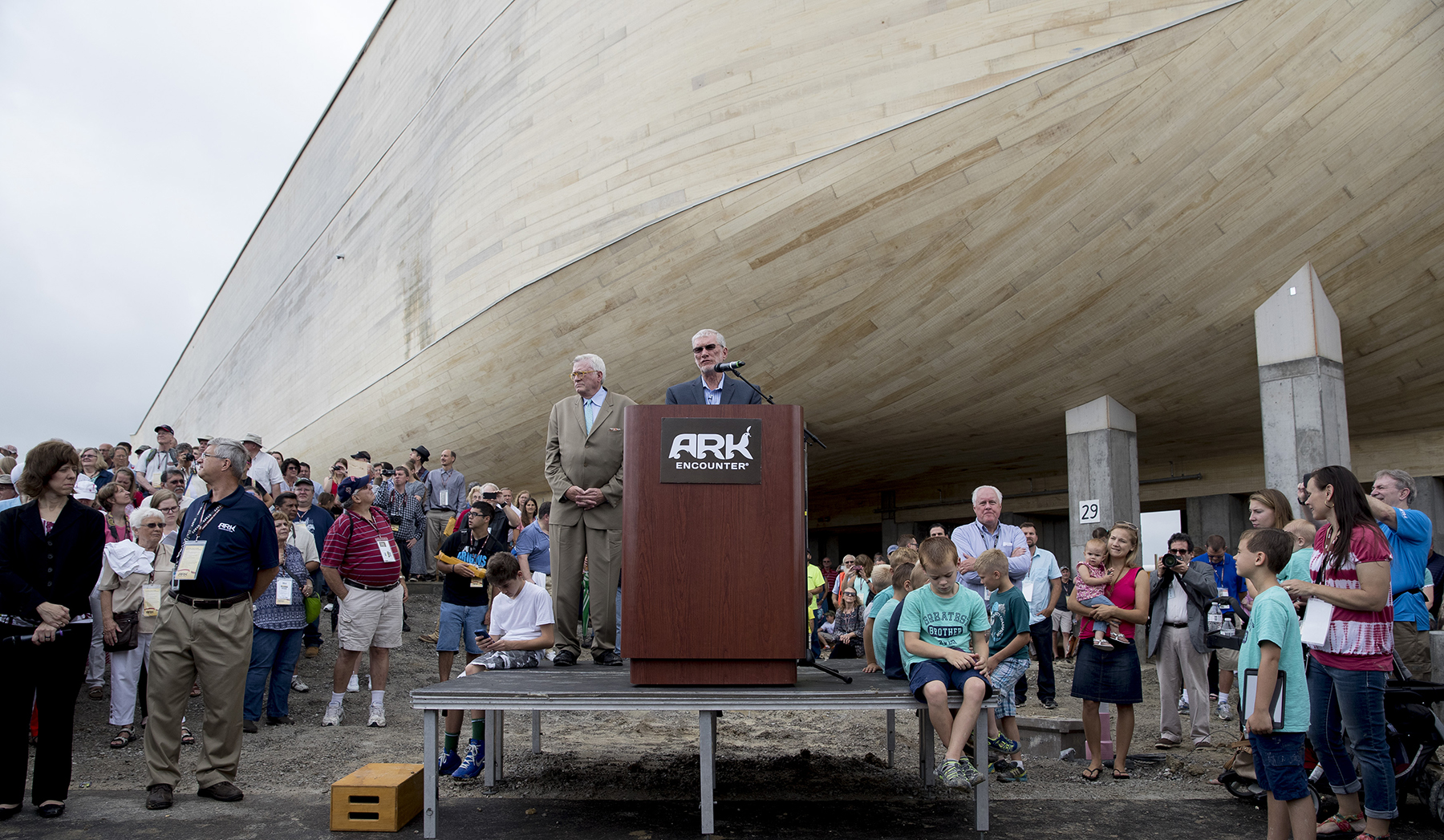
Creationist Ken Ham speaks at a ribbon cutting at Ark Encounter July 5, 2016, in Williamstown, Ky. (Photo by Aaron P. Bernstein/Getty Images)
In 2020, Ham posted on Facebook: “Is ‘Christian nationalism’ growing in America and do we need to ‘reframe’ concepts of patriotism in ways that are more inclusive?’” He then went on a long rant about how the Democrats want to “destroy Christianity and anything related to Christians.” He concluded, “It’s interesting that God’s word uses a lot of military terminology because we are in a war — a raging spiritual war.”
In a recent series of tweets, Ham attempted to expose Atlanta megachurch pastor Andy Stanley as a false teacher due to Stanley’s comments about evolution.
“God’s word has severe warnings for those of us who are teachers,” Ham tweeted. He then quoted the prophet Jeremiah talking about shepherds who “destroy and scatter the sheep,” who destroy God’s vineyard and trample it into a desolate wilderness. He added, “Beware of false prophets” who are “ravenous wolves.”
Then he went on about the lukewarm church that is “going soft on the LGBTQ worldview” and mourned all the younger generations leaving the church due to pastors who promote evolution.
“Doubt in God’s word led to unbelief,” he wrote. “I judge Stanley’s word against God’s word. Stanley is judging God’s word against his own word and the word of fallible scientists he has chosen to believe.”
If scientific consensus denies the commonly held evangelical beliefs that the universe is roughly 6,000 years old, that we all descended from two individuals named Adam and Eve, and that there was a literal global flood, then many evangelicals see scientific consensus as an attack on the Bible. And when scientists present the evidence against these commonly held beliefs, many evangelicals experience a faith crisis.
Andy Stanley’s pastoral approach to science and faith
In the clip Ham shared of Stanley discussing evolution, Stanley begins with this statement: “There’s no necessary conflict between evolution and theism.”
He continues: “Evolution is a means. Theism says there was an agent.” Then when one person in his congregation of thousands began clapping, Stanley jokes, “I have one high school biology teacher Christian here that’s like, ‘Please! Would somebody make this clear!’”

Andy Stanley
Stanley acknowledges discussions about evolution cause faith crises for students. But he’s willing to be honest about what scientists and biblical scholars have discovered and have wrestled with together in peer review.
“The point of (the Genesis account of creation) isn’t here’s how God did it,” he explains. “The point of that is that God did it. And the reason we know that is it stood in stark contrast to the Sumerian, the Babylonian and the Canaanite and Egyptian creation myths.”
So why might God have allowed the creation accounts of Genesis to be written as they were? Stanley suggests, “God accommodates to our capacity” because God is a Heavenly Father.
“What was the capacity of ancient, ancient, ancient, ancient slave culture Hebrews?” Stanley asks. “Was there any way in the world God could explain to them how he did it? No.”
If God was willing to accommodate them as they processed their relationship with the earth, might God be willing to accommodate us as well?
For Ham, God’s primary concern appears to be “power over.” But for Stanley, God’s primary posture appears to be caretaking.
Ham and other evangelicals want to exercise their power over others to teach the Bible as science — or as more accurate than science.
BioLogos: Integrate
For Christians to gain the courage to face their faith crisis, they’re going to need to be shepherded by pastors like Andy Stanley, pastors who are willing to talk about the realities of modern scientific consensus and about what archaeologists and biblical scholars have discovered about ancient Near Eastern cosmology, who are equipped to help them process the spiritual crisis that results.
Christians and pastors alike need resources to learn about modern science and especially about care for the earth. One such resource that recently released is the BioLogos: Integrate science and faith curriculum. I had the opportunity to preview and write an extensive review of the curriculum before it released in February.
If evangelicals could gain the courage to face their faith crisis led by pastors like Stanley who are willing to affirm their questions and learn from the scientifically rigorous and faith enriching resources groups like BioLogos are providing, then perhaps our ecological crisis could begin to heal.

Rick Pidcock
Rick Pidcock is a 2004 graduate of Bob Jones University, with a Bachelor of Arts degree in Bible. He’s a freelance writer based in South Carolina and a former Clemons Fellow with BNG. He recently completed a Master of Arts degree in worship from Northern Seminary. He is a stay-at-home father of five children and produces music under the artist name Provoke Wonder. Follow his blog at www.rickpidcock.com.

